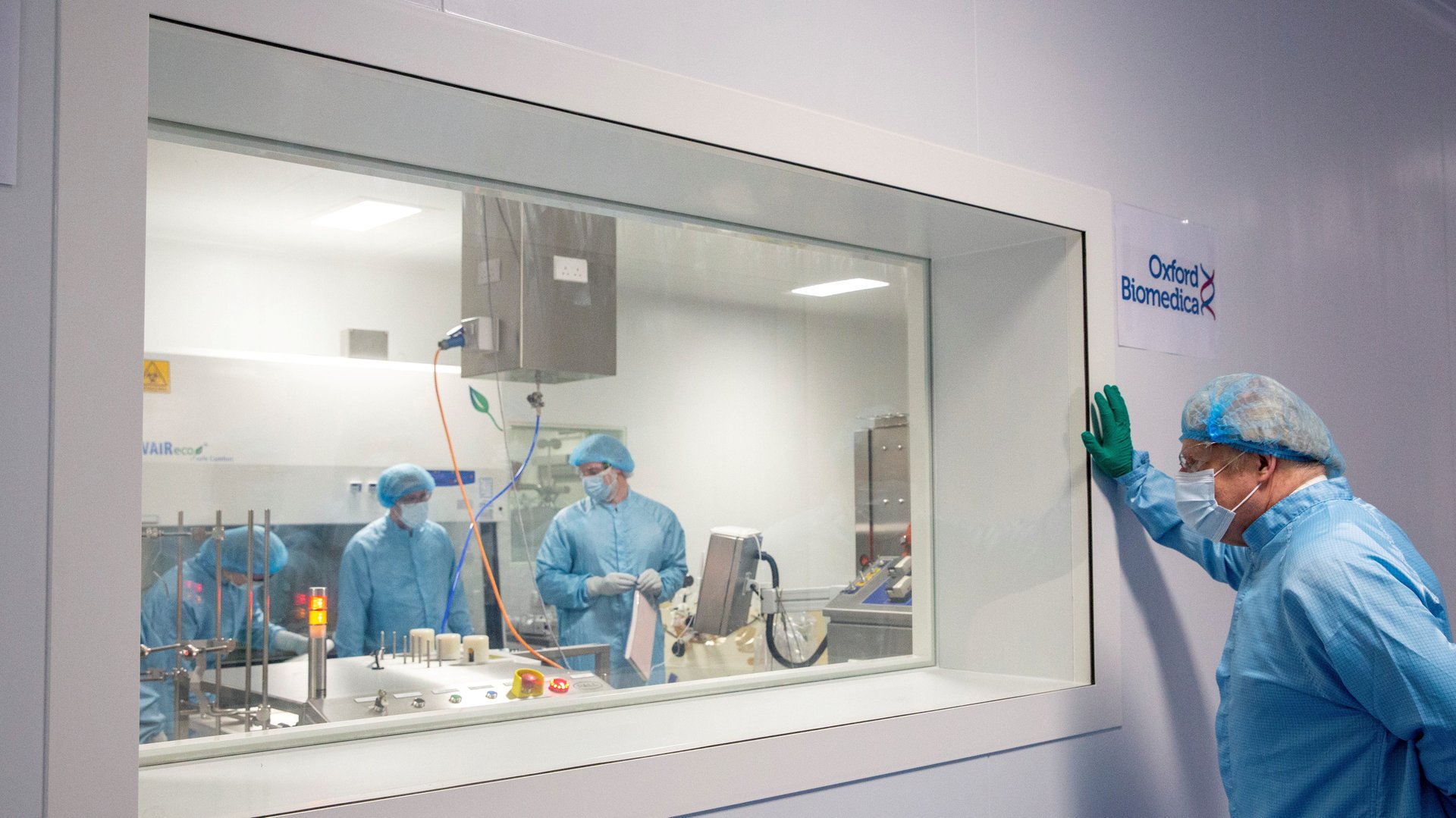Covid-19 is spurring unprecedented collaboration among vaccine manufacturers
Cooperative manufacturing isn’t unheard of in the pharmaceutical world, but it’s not common. The demands of the Covid-19 pandemic, however, have turned rival companies into manufacturing allies.


Cooperative manufacturing isn’t unheard of in the pharmaceutical world, but it’s not common. The demands of the Covid-19 pandemic, however, have turned rival companies into manufacturing allies.
On Jan. 27, the French drug company Sanofi announced that it would help BioNTech manufacture some 125 million doses of its mRNA-based Covid-19 vaccine for the European Union (EU). This collaboration is unique in the pharmaceutical industry: Sanofi and BioNTech are direct competitors in the vaccine world, the former still hoping to launch its own Covid-19 vaccine within the year.
But they’re not alone. AstraZeneca, which has been criticized for its slow pace of vaccine production in the EU, partnered with JCR Pharmaceuticals in Japan and the Serum Institute of India to ramp up manufacturing. Moderna has partnered with the Swiss chemical company Lonza Group AG to manufacture vaccines and is seeking other partners, Bloomberg reports.
“Before Covid you didn’t see it that much, because companies are quite protective of their intellectual property,” says Michael Haydock, a senior director at Informa Pharma Intelligence.
In the past, drug companies worked with one another, but typically only on research and development. Sanofi and GSK are collaborating to develop a Covid-19 vaccine, while Pfizer and BioNTech have teamed up to develop their own (BioNTech had the research, whereas Pfizer had the clinical trial experience). Before the pandemic, about 300 companies rallied together around finding novel therapies for tuberculosis and other neglected tropical diseases.
That won’t work during this pandemic. A crucial step in preventing Covid-19 will be delivering vaccines to billions of people as soon as possible. Individual companies won’t be able to scale up their operations to meet this demand on their own. So companies have tried to figure out how to use existing equipment to pivot to manufacturing competitors’ vaccines, such as the Sanofi and BioNTech collaboration.
Usually, profit considerations have deterred these types of joint ventures. When a drug company makes a new drug, a patent usually grants exclusive manufacturing rights. This allows it to recoup the cost of research and development and turn a profit. Sharing production rights with another company lowers the revenue the original developer can ultimately earn.
Vaccines are no different, but they’re even harder to make because they often require biological agents, Laetitia Bigger, the director of vaccines policy at the International Federation of Pharmaceutical Manufacturers and Associations, told Quartz previously. These vaccine components require living organisms such as E. coli bacteria, genetically altered moth cells, or modified viruses capable of transporting antigens in the body. Because of the need for specialized equipment, companies usually only gear up to make their own vaccines offering little financial incentive to coordinate (drugs are different because their biological agents often involve batch manufacturing with equipment that can easily be repurposed).
During the Covid-19 pandemic, pharmaceutical companies have little choice but to share manufacturing capacity. Once the crisis is over, however, the allure of keeping revenue for themselves will likely see the return of exclusivity among vaccine producers.
Correction (Jan. 29): This story has been updated to reflect an accurate spelling of Michael Haydock’s name.